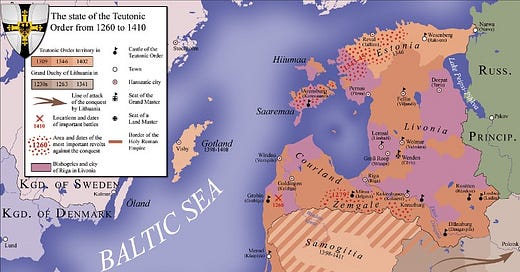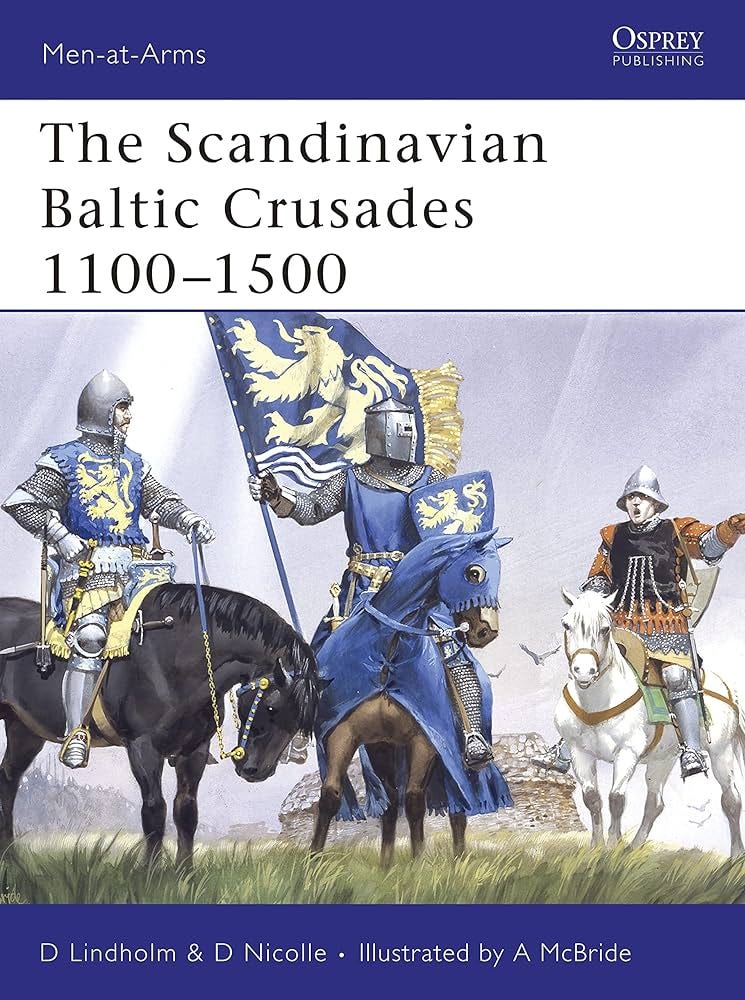In 1390 Henry of Bolingbroke – the future Henry IV – embarked on a crusade or 'reys' in the Baltic. This is an interesting side-episode of his career, and well worth a closer look.
Henry had initially wanted to join the French crusade to the Barbary coast, but was unable to get a safe-conduct from the King of France, Charles VI. England and France were at truce, but Charles may have been wary of allowing an English noble to pass through his land with an armed retinue. There also possible resentment at the life-grant of Guyenne to John of Gaunt, Henry's father, in which Richard II was called King of France.
Thus, Henry changed his plans. He returned to England in June 1390 and began making preparations to depart for the Baltic. His pregnant wife, Mary, was left with John of Gaunt while her husband made ready. Two ships were chartered, skippered by captains from Gdansk and piloted by lodesmen from the Baltic. As soon as Henry's cabin was prepared – the only furnishing was a hammock, apparently – he and his men embarked on 19 July.
On 8 August, three weeks later, he stepped ashore at Rishoft, thirty miles north of Gdasnk. His 'reys' had begun.
(Note: 'Reys/Reysen' was a German term with a variety of meanings – journey, war, campaign etc – that came to acquire the particular meaning of a crusade fought by the Teutonic knights and its allies in the Baltic region).






I knew about the Teutonic Knights but not about Henry.
I swear I've learned more interesting little bits of history in 6 months on Substack than in years of reading.